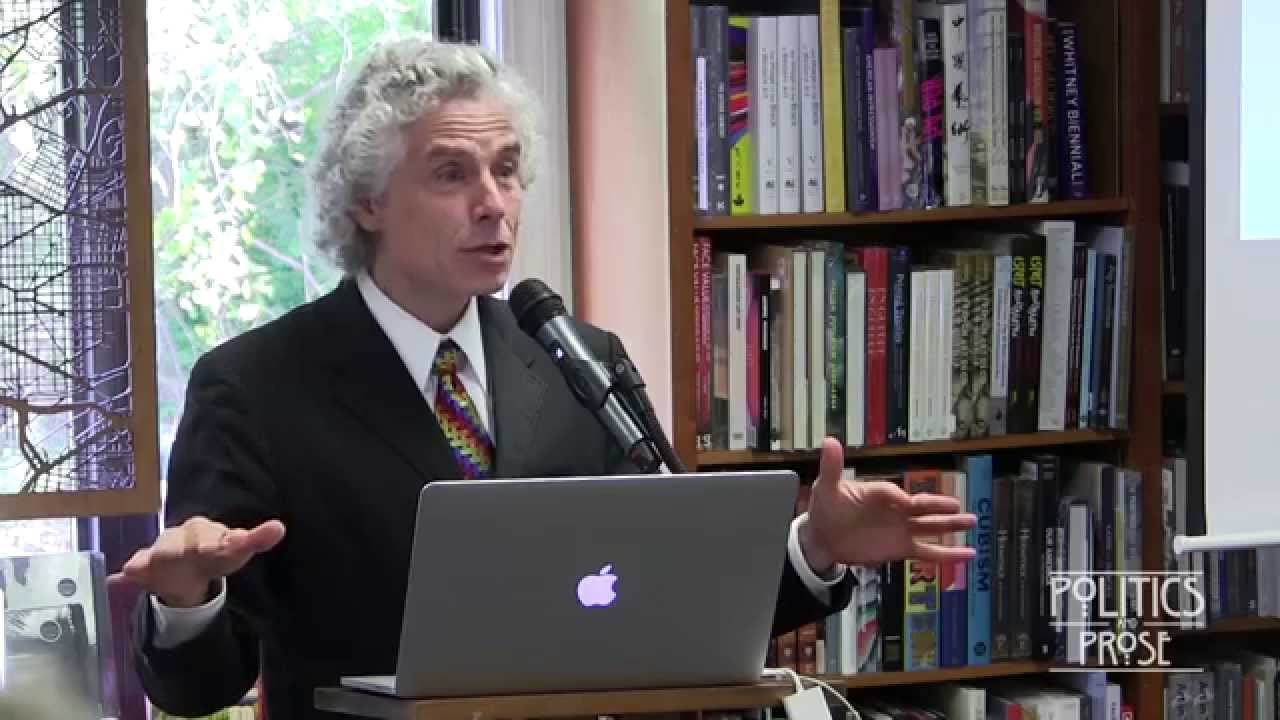Politics and Prose
http://www.politics-prose.com/event/book/steven-pinker-sense-of-style-thinking-persons-guide-to-writing-21st-century
All writers know you can’t have too many books on the craft, whether for practical details of usage and vocabulary, for inspiration in mid-sentence, or for sheer companionship in a lonely endeavor. Pinker, the distinguished cognitive scientist and author of many works on the mind and language, is also chair of the Usage Panel of the American Heritage Dictionary, and his new book covers rules, clichés, coherence, revision, and more. (Viking)
Founded by Carla Cohen and Barbara Meade in 1984, Politics & Prose Bookstore is Washington, D.C.’s premier independent bookstore and cultural hub, a gathering place for people interested in reading and discussing books. Politics & Prose offers superior service, unusual book choices, and a haven for book lovers in the store and online. Visit them on the web at http://www.politics-prose.com/
Source




i would say its 13 inch.
This was so much fun to watch!
Isn't it so much fun to ridicule the lesser educated among us.
judgmental flannel dude is judging.
ooh thnx yootoobe! [style]
This speaker seems fairly intelligent.
The crowd is cloyingly giggly until Pinker utters "rising titters" at 26:40
24:21 "Using a generator indoors can kill you in minutes"
BADASS ATTITUDE OF QUOTES IN ACTION.
"It is better to be clear and possibly wrong than fuzzy and not even wrong."
– Steven Pinker.
"It is better to be fuzzy and possibly right than simplistic and definitely wrong."
– Ulysses Alvarez Laviada.
The first quote assumes that clarity doesn't have shortcomings in itself. For instance, the habits of clarity develops a tendency for us to be simplistic rather than simple when the context requires it. The habits of clarity also develops the tendency for us to dismiss fuzziness when the context might require it.
The second quote assumes that fuzziness doesn't have shortcomings in itself. For instance, the habits of fuzziness develops a tendency for us to be over complicated rather than complex when the context requires it. The habits of fuzziness also develops the tendency for us to dismiss clarity when the context might require it.
Both quotes dismiss one ontological nature of reality, namely, anything that can show human excellence, in our case, simplicity and complexity, tend to show their natural shortcomings when either of them becomes a habit.
"They drink Coke Classic!"
Oh, Pinker.
Very good, but proceeds sometimes using men of straw.
Pinker has a fascinating tie. I do remember that enrollees of our colleges and universities exhibited a steep decline in academics in the 1960s. It was palpable and everywhere evident. The viewpoint of some profs was that, after the ramping up of the Vietnam War and the draft, to fail a student was to consign him to the jungle. Somehow I feel that this was a fundamental change of direction in the purpose of education, that it was a tectonic shift, if you will. Consider this and let me know what you feel. (I was there.)
Pinker's intelligence is great, but… how about not reading your essay out loud from a laptop screen.
Yes, there is much overlap, but fiction is still an entirely different matter. Often you DO want to use the ''curse of knowledge'', because you want to hide things from the reader until much later in the story. As a rule, fiction is much harder to write than nonfiction.
cool